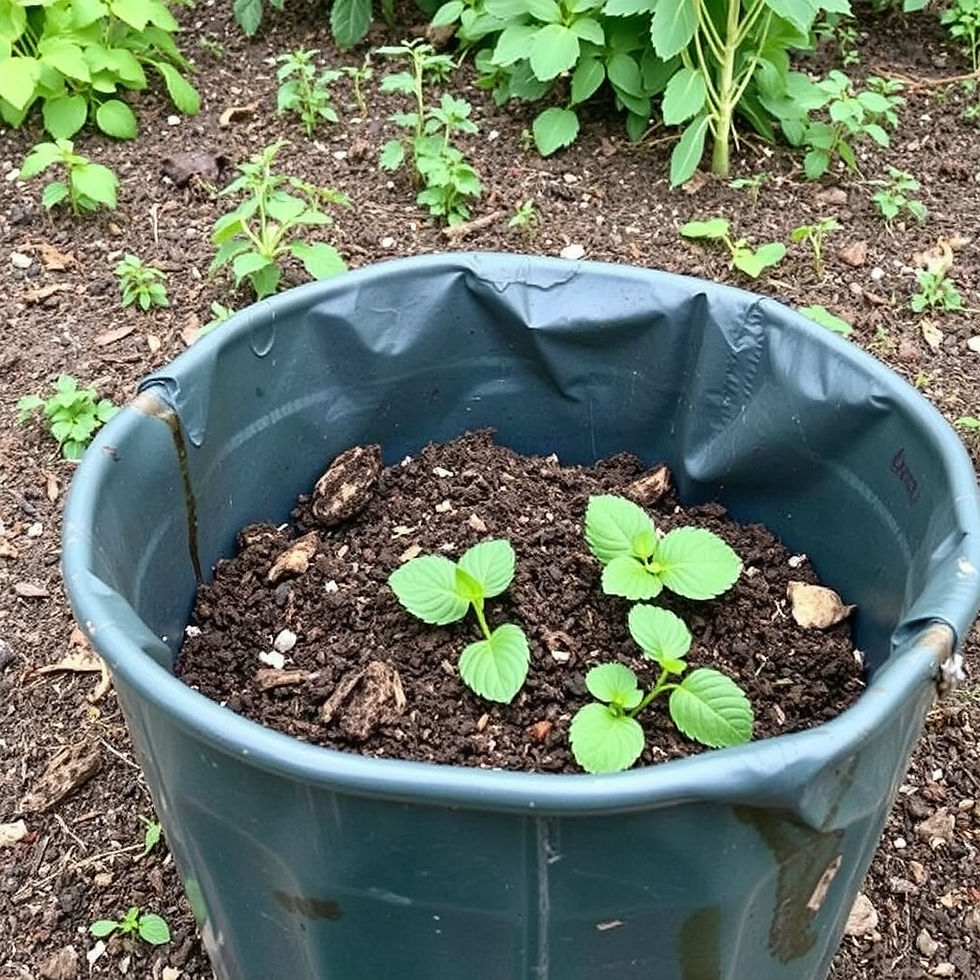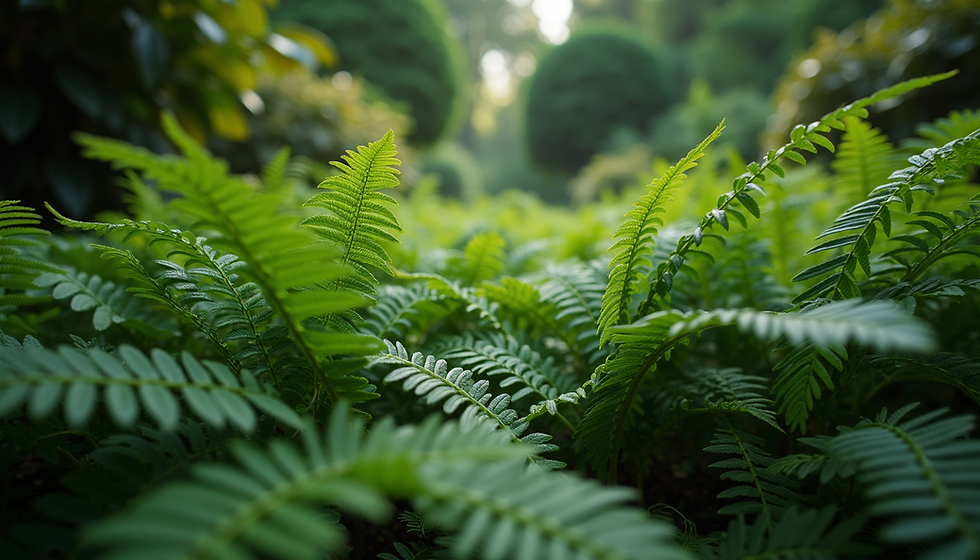Composting 101: Easy Steps to Master the Kitchen-to-Compost Method for Your Garden
- Sep 18, 2025
- 5 min read
If you're serious about reducing food waste and building healthier soil, the Kitchen-to-Compost method is your perfect starting point. Composting is one of the most efficient ways to turn unwanted kitchen scraps into nutrient-rich soil that can benefit your garden significantly. Whether you're a seasoned gardener or just starting out, learning how to compost can transform your waste into garden gold.
What Is Composting and Why It Matters
Composting is the natural process of recycling organic material, like kitchen scraps and yard waste, into a valuable amendment for your garden. By composting, you not only reduce the amount of waste sent to landfills but also create a sustainable resource that enriches soil health.
The benefits of composting are vast. It improves soil structure, retains moisture, and promotes healthy root development in plants. Moreover, composting plays a crucial role in reducing greenhouse gas emissions through the diversion of organic waste from landfills.

The Science Behind Composting Kitchen Waste
At its core, composting is about creating the ideal conditions for microorganisms, worms, and other decomposers to break down organic material. The process involves a mix of "green" materials (rich in nitrogen, like fruit and vegetable scraps) and "brown" materials (rich in carbon, like dried leaves and cardboard).
The magic happens when these materials come together to create heat, which accelerates decomposition. The byproducts include dark, crumbly compost that is packed with nutrients, ready to be utilized in your garden.
Compostable vs. Non-Compostable Kitchen Waste
Understanding what can and cannot be composted is essential. Here’s a quick guide:
Compostable Kitchen Waste:
Fruit and vegetable scraps
Coffee grounds and filters
Eggshells
Grains and bread
Yard waste (dry leaves, grass clippings, etc.)
Non-Compostable Kitchen Waste:
Meat and dairy products
Oily foods
Cooked foods
Processed foods with additives
Pet waste
By sticking to compostable materials, your compost pile will thrive without unwanted odors or pests.
How to Start the Kitchen-to-Compost Method at Home Without Equipment
Here’s how to start composting kitchen waste even if you don’t have any tools or bins:
Choose a Location: Find a small, shaded spot in your yard or balcony.
Start a Pile: Begin layering your kitchen scraps and yard waste directly on the ground, turning it occasionally for aeration.
Add Water: Ensure your pile is moist but not soaking wet.
Monitor: Watch your pile for temperature and smell. It should feel warm and earthy.
This straightforward approach allows you to start composting without any costly bins or tools.
Top Mistakes to Avoid While Composting
Even seasoned composters can make mistakes. Here are some common pitfalls to avoid:
Not Balancing Greens and Browns: Without the right ratio, your pile can become too wet or too dry.
Turning Too Frequently: While aeration is important, too much turning can disrupt the microbial process.
Ignoring Odors: A smelly heap usually indicates an imbalance. Adjust your mix and add airflow to resolve the issue.
Best Bin Setups for Small-Space Composting
Composting can easily fit into apartments or limited spaces. Whether you're using a balcony bin or starting the Kitchen-to-Compost method, there are easy ways to manage food waste efficiently. Here are some practical composting tips for small spaces that make it easy to compost in apartments or balconies:
1. Worm Bins (Vermicomposting): Ideal for indoor use, worm bins utilize red worms to break down food scraps while producing nutrient-rich castings.
2. Compost Tumblers: These rotating bins facilitate quick decomposition and are perfect for small backyards or patios.
3. Bokashi Bins: A fermentation system that allows you to compost kitchen waste (including meat and dairy) without odors. Just mix with Bokashi bran and let it break down.
Composting Do’s and Don’ts for Beginners
Do’s:
Start with a mix of brown and green materials.
Keep your compost moist - like a wrung-out sponge.
Turn your pile every few weeks to aerate.
Don’ts:
Avoid adding large chunks of material without chopping.
Don’t compost materials treated with pesticides.
Never include pet waste or meat products.
How Long Does Kitchen Waste Take to Turn into Compost?
Typically, kitchen waste will take between three weeks to six months to decompose completely into compost, depending on factors like temperature, moisture, and the material used. Hot composting can speed up the process compared to cold composting, which takes longer.
Troubleshooting Common Composting Issues
Smell:
If your compost smells bad, add more brown materials to regain balance and allow more airflow.
Pests:
Cover your compost with a tarp or use a closed bin to keep pests away. Avoid adding food scraps that attract them.
Mold:
A little mold is normal; however, if it becomes excessive, mix in more dry ingredients and aerate your pile.
How to Know When Compost Is Ready for Use
Well-made compost will look dark, crumbly, and have an earthy aroma. When you can no longer recognize the original scraps, it’s time to harvest!
Using Homemade Compost in Your Garden Beds and Pots
Adding your garden compost into raised beds can dramatically improve plant growth. To incorporate your compost effectively, mix it into the top few inches of soil in your garden beds or pots. This enriches the existing soil and provides crucial nutrients to your plants.
Why Your Plants Love Kitchen-Sourced Compost
Plants thrive on compost! It retains moisture, suppresses plant diseases, and provides essential nutrients that help produce healthier and more robust crops. With kitchen-sourced compost, you're empowering your plants.
Composting in Apartments or Balconies
Even without a garden, you can compost! Use a small bin or a worm farm on your balcony. Ensure good airflow and use smaller amounts of food waste to manage odors.
Can You Compost Cooked Food and Dairy?
While many composting methods do not allow cooked food and dairy due to odor and pest issues, Bokashi composting accommodates these materials, making it a great choice for urban composters.
How to Speed Up the Composting Process Naturally
To accelerate composting, consider these tips:
Chop scraps into smaller pieces.
Mix in nitrogen-rich materials (grass clippings, food scraps).
Maintain consistent moisture levels.
By following these steps, you’ll soon find that your kitchen waste can easily be converted into nutrient-rich compost.
Conclusion
Transforming your kitchen waste into compost is not just rewarding; it's an eco-friendly way to contribute positively to your garden and the planet. By mastering the Kitchen-to-Compost method, you’re not just reducing waste—you’re nurturing the soil and creating a sustainable growing environment for future crops. So grab your scraps, start composting, and watch your garden flourish! With a little time and consistency, your home compost becomes a powerful asset for any eco-conscious gardener.
Stay updated with the best hacks - Follow us!
Happy Gardening!



Comments